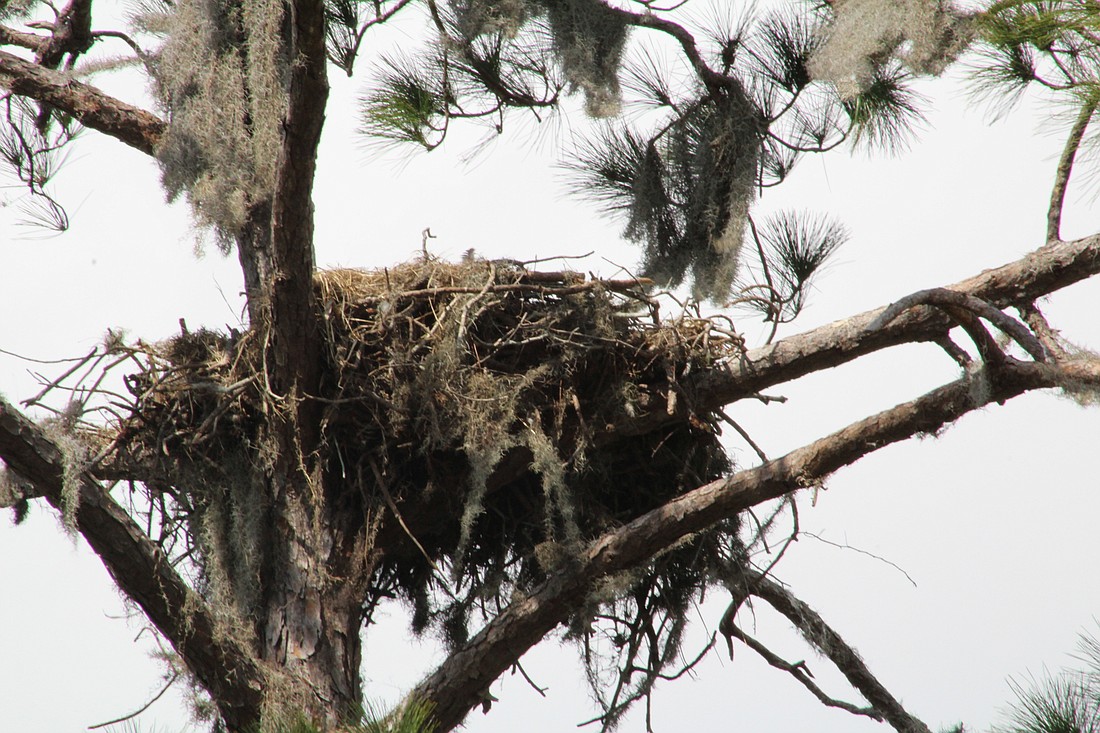- December 16, 2025
-
-
Loading

Loading

Justin Matthews was having a tough day Nov. 2. He had just received a distressing call — a male bald eagle was dead.
Matthews, of Justin Matthews Wildlife Rescue, gets those calls about three times a year. He has the sad duty of collecting the eagle’s body. This time, Matthews went to Westwinds Village, a mobile home park off Natalie Way and State Road 70 in Bradenton.
“He landed on a power line and was electrocuted,” Matthews said.
Matthews said the bird may be from the nest at White Eagle Boulevard and State Road 70, adjacent to Our Lady of the Angels church in Lakewood Ranch. He has seen both male and female eagles at the two nests closest to Westwinds, and has not seen the male at the Our Lady of the Angels site for several weeks.
Following the death, Matthews called Florida Power and Light.
FPL spokesman Christopher McGrath said the company is working to install protective covers on wires and equipment in the area where the incident occurred.
“As part of the company’s Avian Protection Program, FPL immediately inspected the site and has worked to engineer protection measures for power poles in the area,” McGrath said. “FPL takes incidents involving birds seriously. That’s why we have invested millions to help minimize bird deaths across 42,000 miles of overhead power lines.”
Matthews also contacted the U.S. Fish and Wildlife Service.
The Bald and Golden Eagle Protection Act makes it illegal for individuals to sell the bodies or any of their parts, even feathers. The FWS picks up deceased birds, documents them and arranges for their transport to its National Eagle Repository at Rocky Mountain Arsenal National Wildlife Refuge in Denver, established in the 1970s. If necessary, it investigates bird deaths.
“(The eagles) are federally protected,” said Timothy Binzen, the FWS Native American liaison for the northeast and southeast regions. “It’s key to report it to the Fish and Wildlife Service immediately. It’s not OK to keep feathers or keep eagles. Everything is supposed to go to the eagle repository.”
That facility accepts the remains of deceased bald and golden eagles and then distributes the birds, their feathers or parts to Native Americans requesting them for religious and cultural purposes through a permit process.
“Eagles are of great cultural importance to many tribes, and the federal government has a responsibility to the federally recognized tribes,” Binzen said. There are more than 500 federally recognized tribes nationwide.
The U.S. Fish and Wildlife Service reports more than 4,000 requests on the waiting list to receive the approximately 900 eagles received by the repository each year.
The Florida Fish and Wildlife Conservation Commission notes Florida has one of the densest concentrations of nesting bald eagles in the lower 48 states, with an estimated 1,500 nesting pairs, behind only Minnesota. Alaska has the most bald eagles, an estimated 30,000 birds.